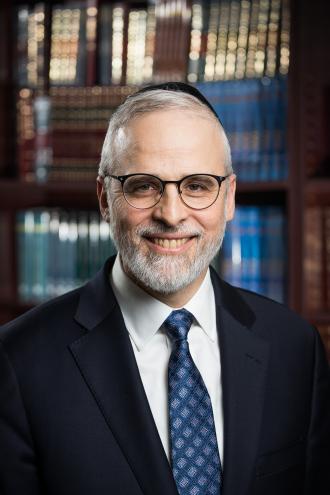The five women crowded together around the kitchen table in New Jersey, their eyes fixed on a laptop screen. It was 7 a.m., and none of them had slept well the night before; they were too anxious and excited for this moment. Jess Katz logged into Skype as her mother and three sisters watched.
A face flickered into view: their cousin, the son of a long-missing uncle, the family they thought they had lost forever in the Holocaust.
On the other side of the screen, on the other side of the world, Evgeny Belzhitsky sat with his daughter, his granddaughter and a translator in his home on Sakhalin Island, Russia. The eight family members smiled at each other, speechless. Then, Katz recalls, they all started to cry.
“What do you say to someone you’ve been searching for your whole life?” Katz says.
More than 70 years had passed since Katz’s grandfather, Abram Belz, first tried to find his younger brother, Chaim. Abram last saw Chaim in 1939, the year their family was relocated along with thousands of other Polish Jews to the Piotrków Trybunalski ghetto at the start of World War II.
The brothers died without seeing each other again, but on April 20 their families had been joyfully reunited.
The young men were separated soon after the family was forced into the ghetto following the Nazi invasion of Poland. Abram’s mother had begged her two sons to escape and save themselves, Katz says.
“My grandfather, because he was the oldest son, felt an obligation to stay,” she says. “But it was important to their mom that Chaim try to escape.”
With his mother’s help, Chaim slipped through a gap in the ghetto wall and fled across the border to the Soviet Union. The family knew he made it there, Katz says, because he sent letters and packages to his family. But then the letters and packages stopped coming.
Abram described what happened next in a 1990 testimonial for Steven Spielberg’s USC Shoah Foundation project:
Less than a year after we moved into the ghetto, my grandfather dropped dead in the house. Two weeks later, my 24-year-old sister died of tuberculosis. My uncle who was 26 years old was shot, his wife and baby were sent to Treblinka where they were gassed to death by the Nazis. The rest of my family was exterminated. My parents were sent to Treblinka and were killed in the gas chambers.
Of more than 60 relatives, Abram and one of his cousins were the...read more at The Washington Post















